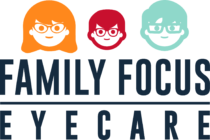Summer is almost here. That means a little something different for everyone, but to me I’m thinking driving my dogs with all the windows down, long bike rides, BBQs, fireworks, and baseball. However your summer plans differ, you’re most likely planning to spend more time outside. While you may pack the sunscreen and remember to protect your skin – a recent study found that you are less likely to protect your eyes.
The Results are in: We are pretty lousy at protecting our eyes from the sun
According to the nationwide survey, three-quarters of Americans are worried about eye damage from the sun’s ultraviolet (UV) rays, but only 31 percent actually take action to protect their eyes.
I may not be a math guru, but those numbers are pathetic. It is easy for most people to remember sunglasses when planning to enjoy the sun: long car rides and trips to the pool, but UV rays can take as little as 15 minutes before causing damage your eyes, and that is without factoring in the ‘danger hours’ between 2 and 4pm when UV rays are the strongest. Clearly, our mindsets regarding UV and our eyes need to change.
Make sunglasses a priority for the whole family
Sunglasses need to be a priority. Not just for you, but for your children as well.
The study sighted above found that kids, especially those active in sports and the outdoors, generally receive three times the annual sun exposure than that of adults. Research has shown that young eyes are especially susceptible to UV exposure, and since long-term damage is irreversible, the importance of protecting children’s eyes is crucial.
Ways the sun can damage your eyes
As the study states, most of us “don’t realize the dangerous health consequences that can occur from overexposure to the sun’s rays without the right eye protection.” UV radiation can be a silent killer, with the ability to cause damage at the DNA level. UV exposure can contribute to or cause the following:
- Sunburned eyes
- Red, bloodshot, swollen or irritated eyes
- Blurred vision
- Cancer in and/or on the eye
- Cataracts
- Age-Related Macular Degeneration (ARMD)
- Sunburn of the cornea, aka Photokeratitis or “snow blindness” (caused by UV ray reflections from the snow)
- Pterygium or “surfer’s eye” (growth on the surface of the eye caused by intense exposure to sun, wind, or sand – induces astigmatism, dry/painful eyes, and requires surgery to correct)
Not to mention UV causes wrinkles and skin damage around your eyes.
How to protect your eyes with sunglasses
- Wear your sunglasses often and year round – even on cloudy days and during the winter.
- Always wear your sunglasses when you are near water as it reflects 100 percent of UV light.
- Pick a pair of sunglasses that block 99-100 percent UVA and UBA rays and screens out 75-90 percent of visible light (and note that darker shades do not necessarily provide better UV protection).
- I also heavily recommend polarized lenses to help with glare and reflections as light bounces off objects like snow, water, and roads.
You should be able to find a pair of sunglasses that both protect your eyes and serve as your favorite accessory. If you are having trouble finding a pair of sunglasses that work for you – come see us; we love to help. Finally, as always, if you have any questions, comments, or concerns – contact us.




